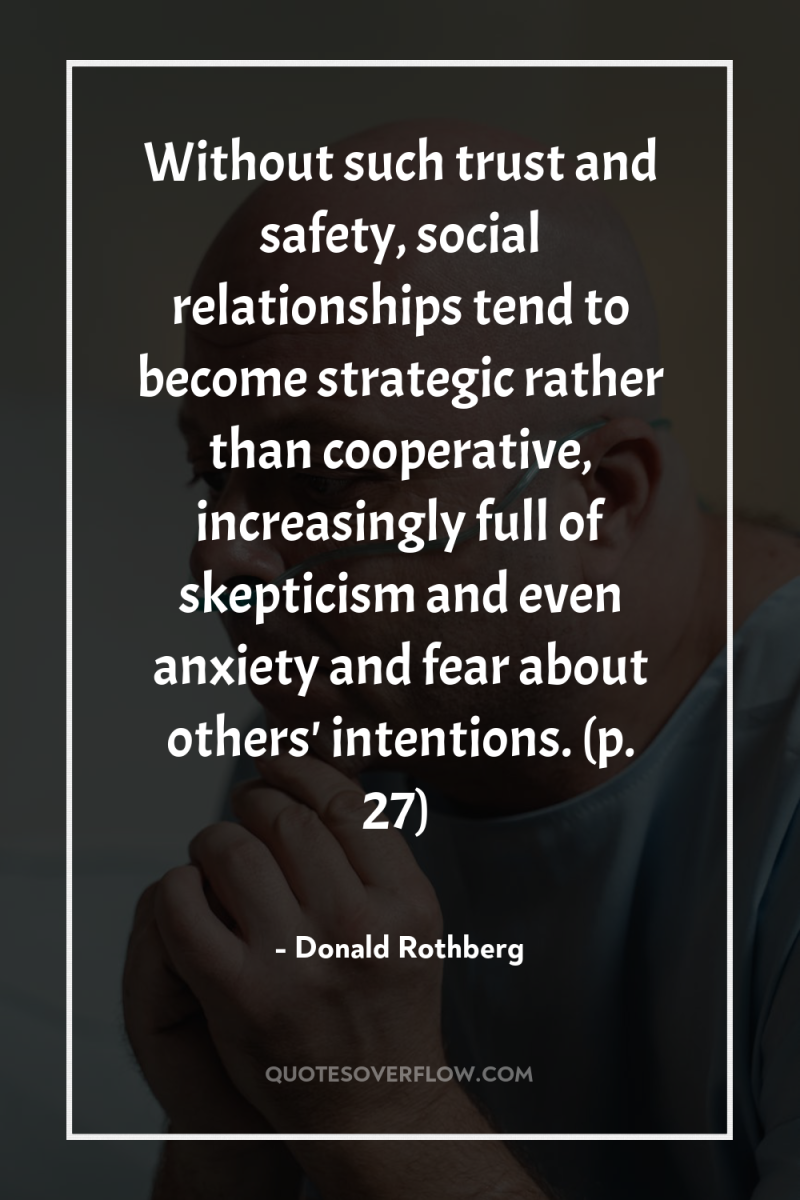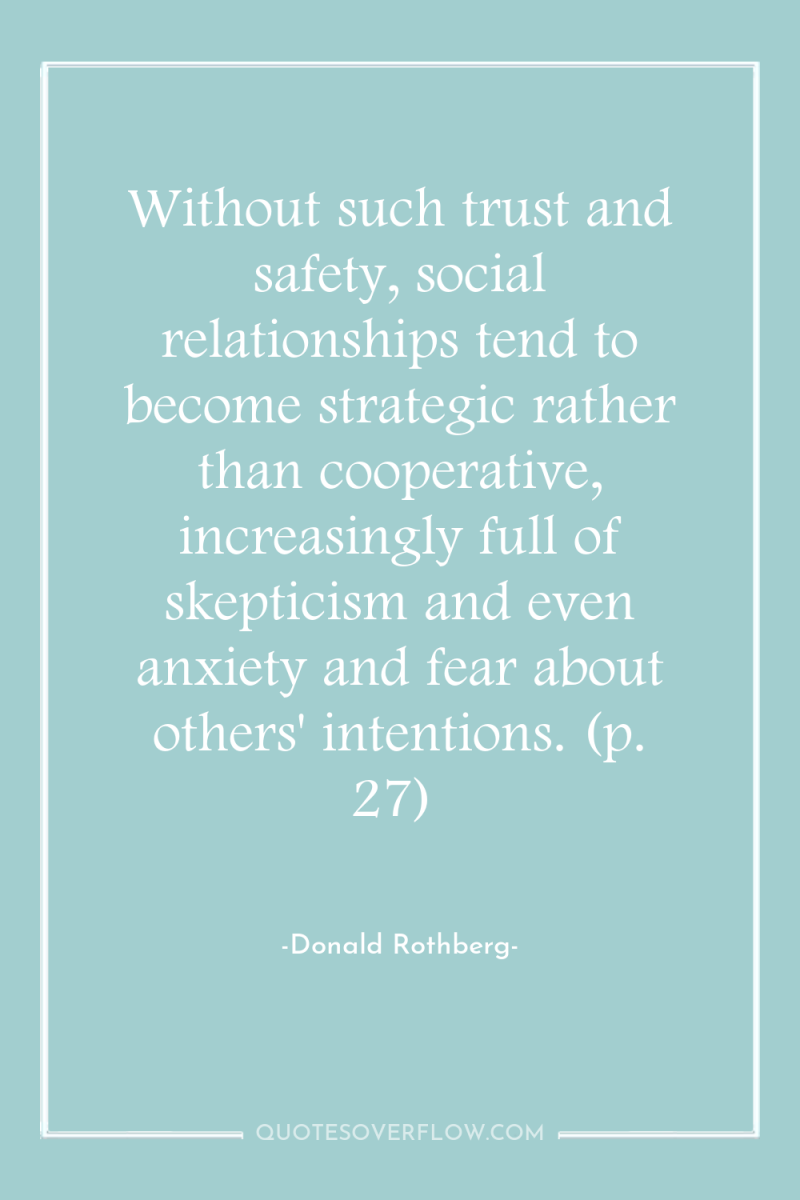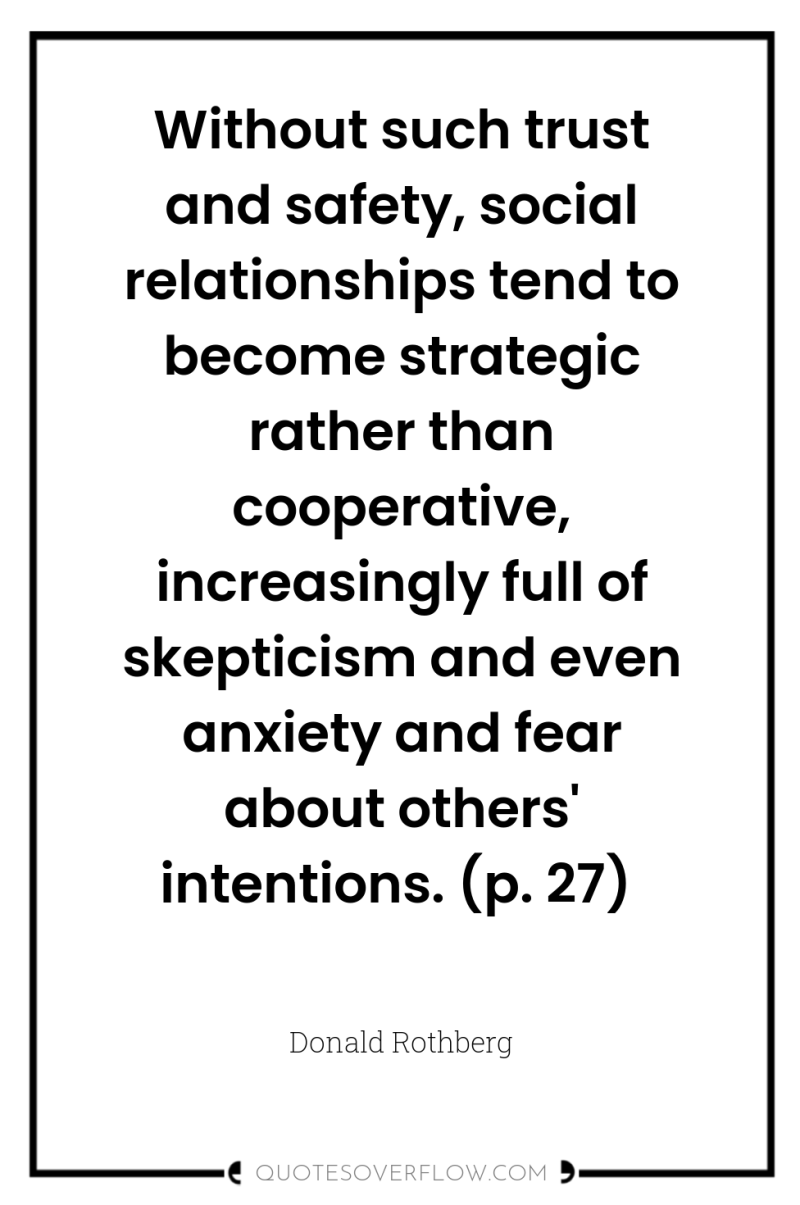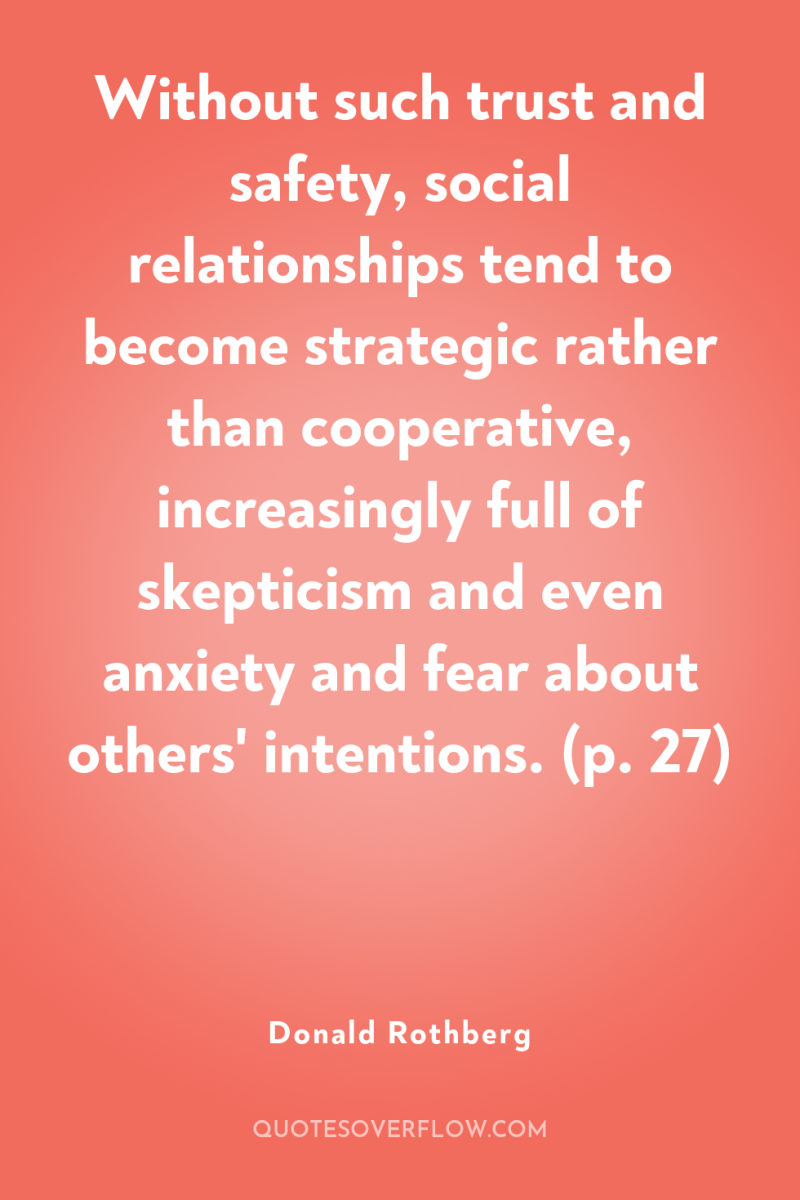Donald RothbergWithout such trust and safety, social relationships tend to become strategic rather than cooperative, increasingly full of skepticism and even anxiety and fear about others' intentions. (p. 27)




About This Quote
Without such trust and safety, social relationships tend to become strategic rather than cooperative, increasingly full of skepticism and even anxiety and fear about others' intentions. (p. 27) This quote is particularly relevant today. The researchers believe that “humans possess a strong tendency to form cooperative relationships despite the costs of doing so” (p.
28). But as they note, “the greater the degree of competition among individuals in an environment, the more likely they are to see others as competitors and manipulate those who are vulnerable” (p. 28).
Thus, it is important to be able to form trusting bonds.
Source: The Engaged Spiritual Life: A Buddhist Approach To Transforming Ourselves And The World
Some Similar Quotes
- Love all, trust a few, do wrong to none.
- I don't trust people who don't love themselves and tell me, 'I love you.' ... There is an African saying which is: Be careful when a naked person offers you a shirt.
- Have enough courage to trust love one more time and always one more time.
- The beginning of love is the will to let those we love be perfectly themselves, the resolution not to twist them to fit our own image. If in loving them we do not love what they are, but only their potential likeness to ourselves, then...
- Trust no friend without faults, and love a woman, but no angel.
More Quotes By Donald Rothberg
- Without such trust and safety, social relationships tend to become strategic rather than cooperative, increasingly full of skepticism and even anxiety and fear about others' intentions. (p. 27)
- To be mindful of social phenomena is thus to identify more clearly hatred, greed, and delusion as well as the seeds of wisdom and compassion both around us and in us. (p. 52)
- Suffering can thus be seen in large part as a kind of resistance or reactivity to the pain of the present moment. (p. 74)
- ...it is often more difficult to remember to be mindful than to be mindful itself. (p. 47)
- Ethics is at the center of both spiritual practice and social transformation. Without a strong ethical foundation, we inevitably fall into contradictions-between means and ends, between our actions and our ideals." (p. 9)